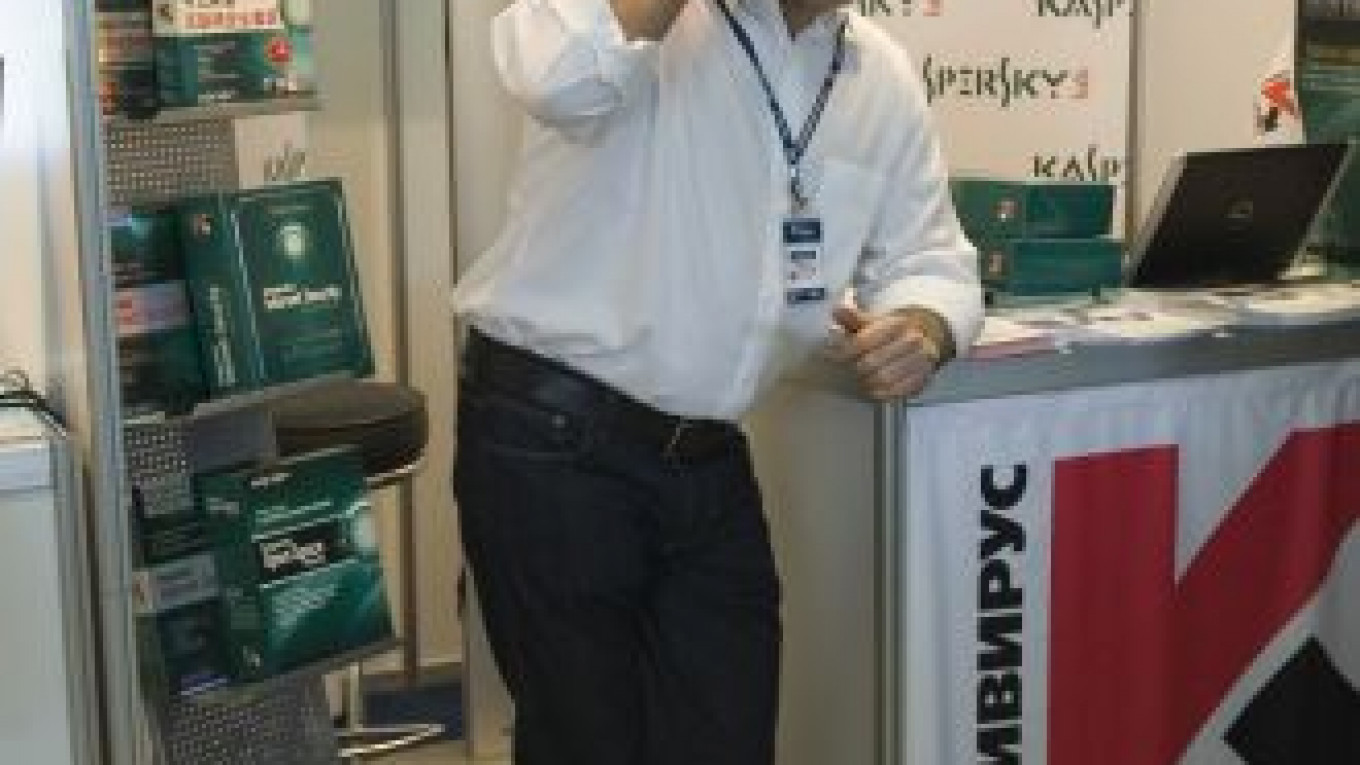The kidnapped son of software multimillionaire Yevgeny Kaspersky has been returned to his family unharmed, media reported over the weekend, though reports differed on whether he was let go for ransom or rescued by police.
Ivan Kaspersky, 20, disappeared on Tuesday on his way to work.
Neither police nor Yevgeny Kaspersky, founder of leading anti-virus maker Kaspersky Lab whose wealth is estimated at $800 million, have commented publicly on the reports.
Lifenews.ru, which broke the story of the disappearance, reported Friday that Ivan Kaspersky was released after his father paid the requested ransom, earlier put at 3 million euros ($4.3 million).
Moscow police spokesman Viktor Biryukov confirmed to Interfax on Sunday that Ivan Kaspersky had been freed physically unharmed.
Biryukov did not say how the young man was freed, but an unidentified law enforcement official told Interfax that police have detained five suspects.
The criminals were "tricked," with the suspected kidnappers and a middleman detained while accepting a down payment on the ransom, the official said. The suspected mastermind has a criminal record, he said.
Kidnapping is punishable with up to 15 years in prison.
A spokeswoman for Kaspersky Lab was unavailable for comment Sunday. An Interior Ministry spokesman also refused to comment on the matter, Lifenews.ru said.
This is the second time since March when the children of top business executives have disappeared. Last month, Viktoria Teslyuk, daughter of senior LUKoil executive Robert Teslyuk, went missing in the Moscow region on the way to a private math lesson. She remains missing with no word of any ransom demands.
Two Chechen natives were convicted last year of kidnapping Mikhail Stavsky, son of a Rosneft vice president of the same name, in 2009. Stavsky was released without ransom.
There were about 700 kidnappings in Russia last year, down from 1,000 in 2009, according to Interior Ministry statistics.
A Message from The Moscow Times:
Dear readers,
We are facing unprecedented challenges. Russia's Prosecutor General's Office has designated The Moscow Times as an "undesirable" organization, criminalizing our work and putting our staff at risk of prosecution. This follows our earlier unjust labeling as a "foreign agent."
These actions are direct attempts to silence independent journalism in Russia. The authorities claim our work "discredits the decisions of the Russian leadership." We see things differently: we strive to provide accurate, unbiased reporting on Russia.
We, the journalists of The Moscow Times, refuse to be silenced. But to continue our work, we need your help.
Your support, no matter how small, makes a world of difference. If you can, please support us monthly starting from just $2. It's quick to set up, and every contribution makes a significant impact.
By supporting The Moscow Times, you're defending open, independent journalism in the face of repression. Thank you for standing with us.
Remind me later.


